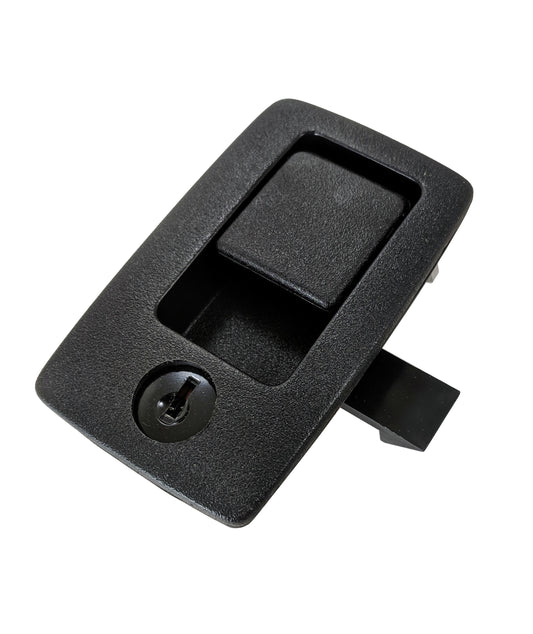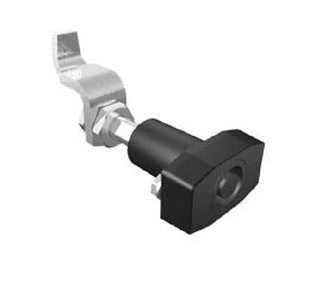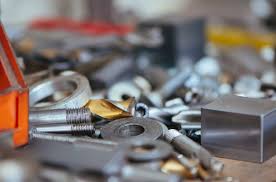Many of the parts we supply are available in a variety of materials. There’s a reason for this, and it’s more than just to say we have “a vast selection for our customers”. The fact is the same material simply won't work in every application, and some materials don't get along with others in the same application. For those of you who are engineers and/or welders these are all obvious things. For the rest of us, the question almost always is "Which one is best for me?". This article is for the rest of us.
We won't discuss specific applications here, nor specific product groups, just the materials we typically work with, to give you an idea of where you might use them and why.
Find the Balance
The truth is, selecting the "material" of your latch or hinge is a kind of balancing act. Generally, you want to strike the perfect balance between cost and material properties that will suit your project's intended use. This is important for a variety of reasons.
Durability
If you want your enclosure to endure the test of time, pick a material that will be sure to withstand whatever environment/users will have to endure. For example, using a plain (unplated) steel hinge on a barn door isn’t a great idea because it will be subjected to rain and snow, which could cause it to rust quickly. Stainless steel or aluminum might be better choices for a barn door.
Stability
Some metals, much like Kindergarten students, don’t like to be too close to each other. For example, Stainless and Aluminum shouldn’t be touching, or they will cause Galvanic Corrosion. Try to keep all the materials in your enclosure matched, or similar. If that's not possible, you'll need to figure out how to make sure the kids all play nice together.
Cost
Picking the best materials for each project not only saves time, but also money! There's no need to use expensive stainless steel on a project when plain (or plated) steel will do the job. Similarly, there's a valid reason to spend the extra money on stainless when it's necessary, so you can avoid costly repairs/replacements down the road.
Let's dive into some examples, starting with the least expensive and moving into the more expensive material options.
Plain Steel
Not all latches are available in "plain" or unplated steel, but many hinges and specialized forged products come standard in plain steel. Generally, these are the least expensive options, but this material is subject to quick corrosion when left unpainted/untreated, outdoors or in harsh chemical environments. Many plain steel components will last a long time in indoor or protected applications especially when painted or coated.
Zinc or Chrome Plated Steel
With an added layer of protective plating that's added after production, Zinc and/or Chrome coated steel parts last longer and can even be used in some applications where light water spray (not salt or chemicals) is a consideration.
Die-Cast Zinc
Since zinc has a high resistance to corrosion, it's ideal for harsh environments. Die-cast zinc components are maybe not as "strong" as a solid steel part but have great durability in outdoor applications. Zinc components are typically shipped without any coating or with a baked-on powder coating for a nicer appearance.
Plastic
Engineered plastics have come a long way in the last few years, and many plastic components are stronger than their equivalent steel parts but have only a fraction of the weight. If the term "engineered plastics" didn't give it away already, this can be an expensive option unless you're using "hundreds" or "thousands" at a time. The debate continues as to whether or not this should be closer to the "inexpensive" end of this list or not.
Aluminum
Aluminum is lightweight and inherently resistant to corrosion (though some Galvanic Corrosion can still occur in some applications). Aluminum easy to drill and cut (this is handy in piano hinges) and quite strong.
Stainless Steel
Stainless Steel is very strong, very resistant to oxidation and can withstand most high-corrosion environments. Not affected by water (even saltwater) or high humidity environments, Stainless is often the choice for marine applications. There are also many grades of Stainless on the market. We typically carry type 304 Stainless.
As always, if you have any questions or if you're struggling to pick the material that's best for your project, CALL US and we'll gladly find the best one for you. We're here to help!



